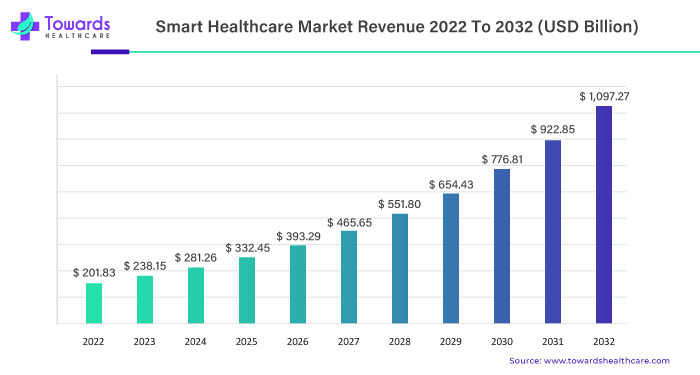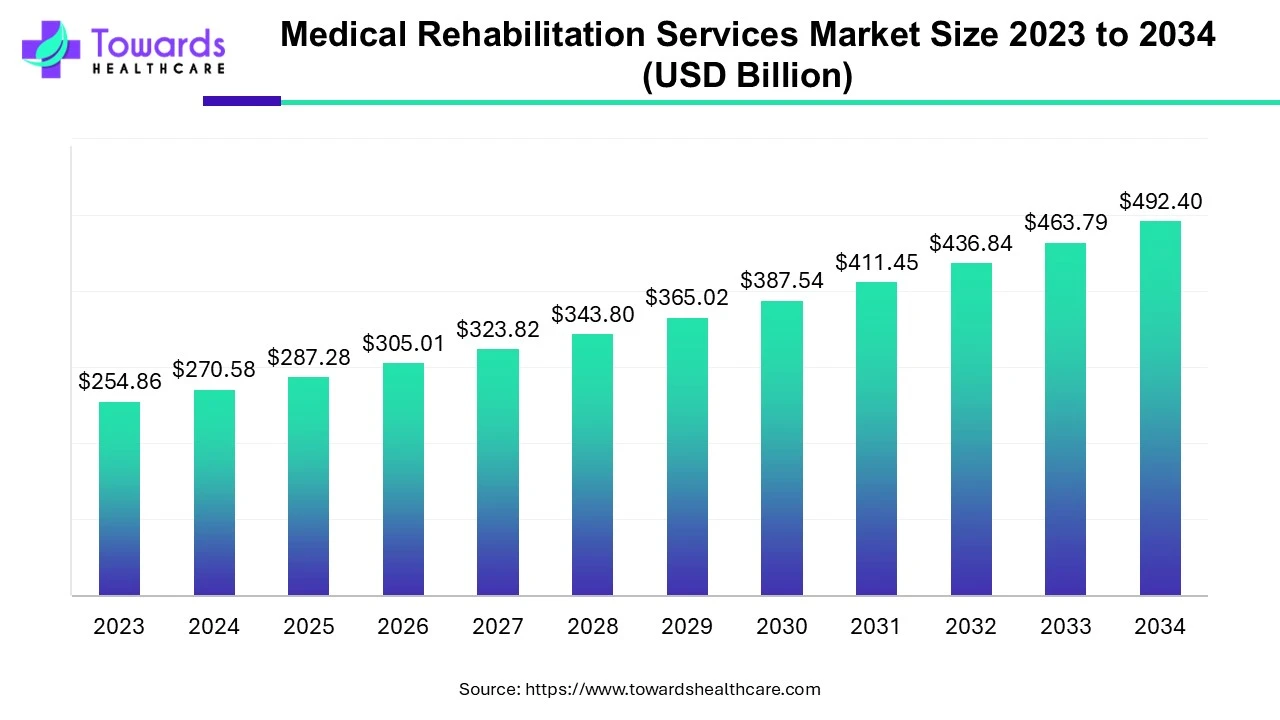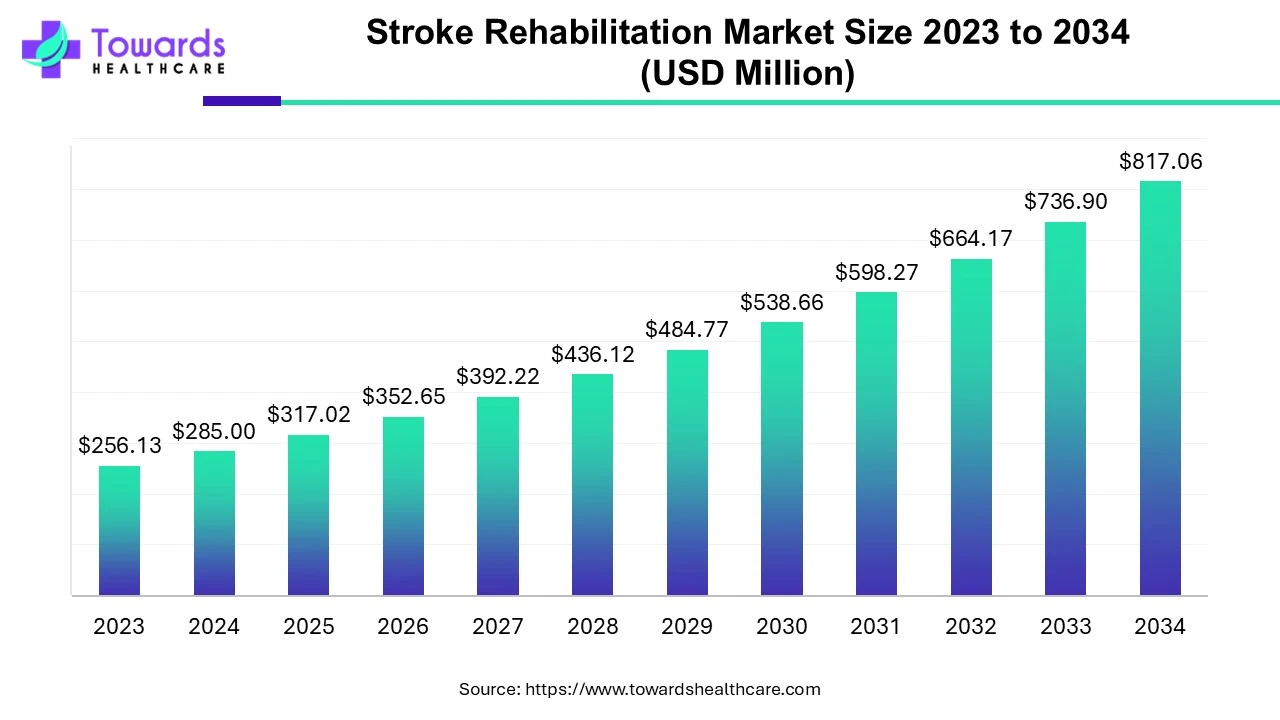Smart Healthcare Market Growth and Outlook
The global smart healthcare market is expected to grow from USD 201.83 billion in 2022 to USD 1,097.27 billion by 2032, at a CAGR of 18.5%, driven by the increasing adoption of telemedicine.

Download statistics of this report @ https://www.towardshealthcare.com/download-statistics/5042
From Passive Patients to Active Participants How Technology is Transforming Healthcare
The smart healthcare market involves using advanced technologies like artificial intelligence (AI), the Internet of Things (IoT), and big data to improve healthcare services’ quality and efficiency. Key solutions in this market include telemedicine, electronic health records (EHR), remote patient monitoring, and health information exchange (HIE).
Several factors are driving the growth of this market, including the increasing demand for healthcare, the rise in chronic diseases, the growing adoption of digital health solutions, and the need to reduce healthcare costs. These technologies not only improve patient outcomes but also enhance the overall patient experience and boost operational efficiency in healthcare organizations.
Key Trends Shaping Smart Healthcare
- Telemedicine: Telemedicine, which enables remote diagnosis and treatment, is expected to lead the market. It addresses challenges like the shortage of healthcare professionals, the need for chronic disease monitoring, and the demand for virtual consultations.
- Remote Monitoring and Automation: Technologies like connected inhalers and fitness trackers that monitor vital health metrics are making healthcare more proactive. For example, 66% of asthma deaths could be prevented with smart technology that monitors patients remotely, allowing for early intervention.
- Telehealth and Remote Care: Telehealth is becoming increasingly popular, with high satisfaction rates from patients (up to 78%) and strong interest from doctors (68%) in expanding remote consultations.
- AI in Healthcare: Artificial intelligence is being adopted more in healthcare, offering potential savings of up to $360 billion annually. AI tools assist with diagnostics, treatment planning, and operational improvements, transforming healthcare delivery.
- Connected Emergency Response: Smart technology in emergency response systems is improving response times. Real-time data sharing between ambulances, hospitals, and emergency departments is enhancing coordination during critical situations.
- Smart Hospital Management: Hospitals are integrating smart systems to streamline operations. These systems manage resources like beds, equipment, and supplies, improving both workflow efficiency and patient care.
Our Table of Content (TOC) covers key healthcare market segments, materials, technologies and trends—helping you navigate market shifts and make informed decisions: https://www.towardshealthcare.com/table-of-content/smart-healthcare-market-new-technology-meets-medicine
Access exclusive insight now @ https://www.towardshealthcare.com/insights/smart-healthcare-market-new-technology-meets-medicine
We’ve prepared a service to support you. Please feel free to contact us at sales@towardshealthcare.com
Web: https://www.towardshealthcare.com
Visit Dental Specifics: https://www.towardsdental.com
Get the latest insights on industry segmentation with our Annual Membership: Get a Subscription
For Latest Update Follow Us: https://www.linkedin.com/company/towards-healthcare


